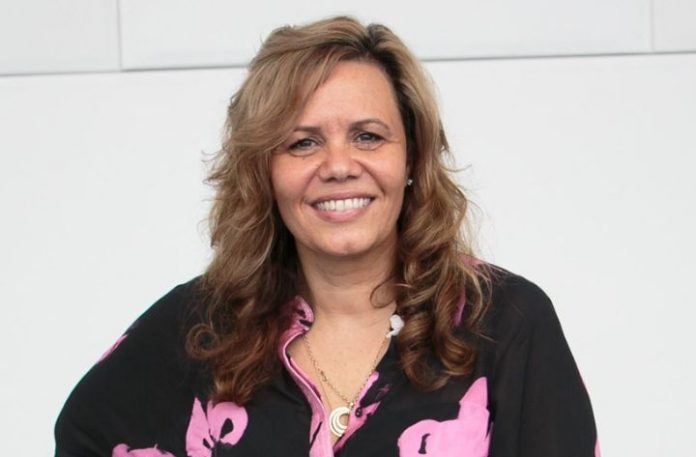“I was resigned to the fact that it might never get out there,” says Yvonne Weldon, referring to the fact that Sixty-Seven Days was shortlisted for a literary award for an unpublished manuscript in 2016 – and appeared in print in August this year.
“It’s pretty mind-blowing,” she says, adding that it has been “really lovely” to get messages of congratulations and support.
Weldon is the current Deputy Chairperson of the Metropolitan Local Aboriginal Land Council and an independent councillor for the City of Sydney. Last year, she was a candidate for Lord Mayor of Sydney. A Wiradjuri woman, she was named NSW Aboriginal Woman of the Year in 2022.
The book, she says, “really shaped itself,” adding, “I’ve always wanted to write a non-fiction about the movement in Redfern, being a part of that, and so many of my family members being on the front lines … that’s something I want to do one day, and still hope to do. That’s a whole lot of time, though, the referencing, interviews and a whole heap of things.” While Weldon still hopes to write a non-fiction work, she says writing fiction still allowed some of the political issues and history of the area to be woven into Sixty-Seven Days.
Asked about the unusual structure of her novel, Weldon explained, “Once the action came to me, that created the structure. I went to bed thinking, what should I call it? It (the title) just came to me.”
“I was extremely scared – when I think about how fiction is structured, and this is unorthodox – I worried that people would try and change it, and I didn’t want to budge.”
Was there a particular reason for including the character of the predator? “The reason why I did that, is that there are a lot of taboos, about what’s acceptable, and what shouldn’t be. We don’t make the positive change that’s needed for women, children, men, to be safe.
“I anticipate that some people will take exception to it. But we don’t make positive change unless we speak out. The silence is far too loud.”
The continued deaths of Aboriginal people in custody and their overrepresentation in prisons are other issues on which Weldon is passionate. “How do you change it if people say, ‘I’m not racist’?” There is a need, she stresses, to scrutinise legislation that has had the effect of disadvantaging Aboriginal people.
Australia’s age of criminal responsibility – age 10 in all jurisdictions save the ACT – is one such law. Another, in NSW, is the Suspect Target Management Plan (STMP), which lists certain individuals deemed to be a potential risk to the community. These people are subject to increased monitoring, with police having expanded powers to question and search them.
In an article in Vogue Australia, Weldon explained: A 2017 report prepared by the Youth Justice Coalition (YJC) STMP working group … identified that almost half of the STMP targets on this hidden list were young people, with the youngest just 10 years old, and more than 44 per cent are Aboriginal people.
Weldon cites the example of the legislation which enabled the removal of Aboriginal children during the years when it was official policy, resulting in the Stolen Generations. It is now widely acknowledged that the policy was racist and caused tremendous hurt and trauma. “That was a policy – people said it was what was needed” at the time. “But what will we be apologising for in the future?”





